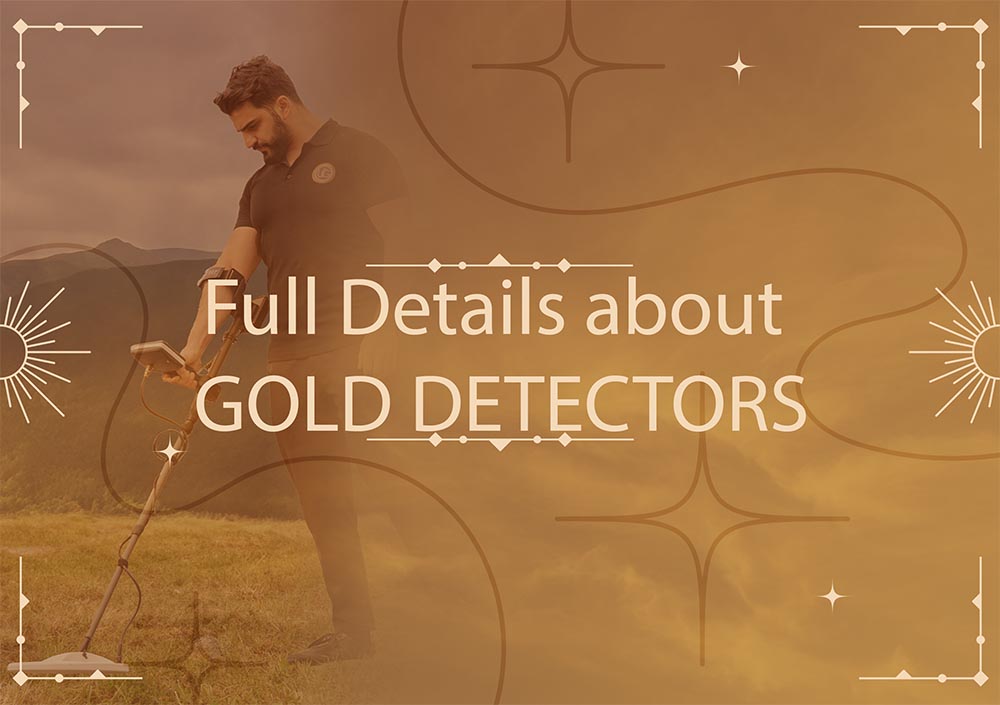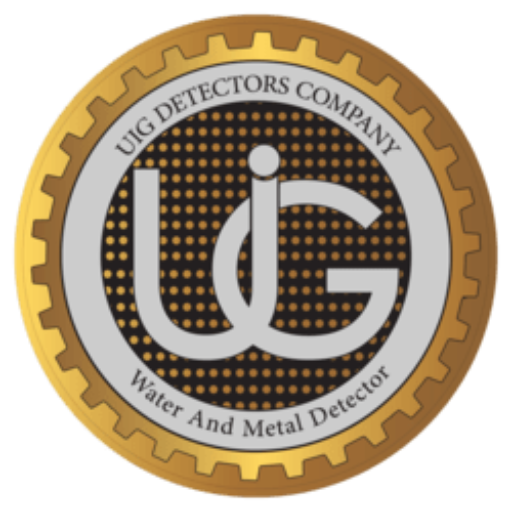المدونة
معلومات تفصيلية عن أجهزة كشف الذهب 2025

Full details about Gold detectors 2024
Table of Contents
What is a Gold detector?
A gold detector is a tool for detecting metals, with the capability to search for various types of gold (raw, buried, archaeological, gold veins) along with other valuable metals. Some regular metal detectors can be misled by signals from certain metals, mistaking them as gold signals. However, specialized gold detectors can be finely tuned to focus specifically on the type of signal produced by gold. This way, you are less likely to waste time on valueless items, increasing your chances of discovering hidden treasures!
Here’s a concise summary about gold detectors and their applications:
1- Finding Natural Raw Gold: The UIG GOLD DIGGER device is distinguished by its ability to detect gold, identifying even the smallest hidden gold pieces across various soil types and terrains.
2- Detecting Gold Veins: The UIG GOLD DIGGER allows prospectors to locate hidden gold veins within rocky terrains in the desert.
3- Discovering Ancient Coins: Gold detectors help in finding minted gold coins from historical civilizations such as the Persians, Romans, Pharaohs, and Ottomans.
4- Detecting Royal Artifacts and Ornaments: These devices enable the discovery of ancient gold crowns, bracelets, and rings used for adornment.
5- Archaeological Excavation: Gold detectors assist in discovering gold-made artifacts, such as swords and other metal tools.
How a gold detector work?
These tools use invisible electromagnetic fields to sniff out hidden metal beneath the ground or tucked away inside objects. It's all about science!
Imagine a coil in the detector's search head like a wire spring. When electricity zips through this coil, it creates a magnetic field, kind of like a bubble around the coil. Now, when this magnetic field bumps into a piece of metal, something cool happens. The metal gets its own tiny electric current flowing, and that, in turn, makes its own magnetic field.
It's this back-and-forth between the detector's field and the gold's field that the detector picks up on as a signal. That signal is then what lets you know there's gold nearby!
Lets understand how it words better:
-
- Zap! The detector fires out electromagnetic waves, invisible energy fields.
- Metal Magic: When these waves hit gold, something cool happens. The gold bounces back its own electromagnetic waves.
- Listen Up: The detector has a special coil that listens for these returned waves.
- Bling Alert! If the detector hears the right kind of wave (from gold!), it lets you know with a sound or a light.
Think of it like a two-way radio for treasure hunting!
But that's not all! Here's a deeper dive into the science:
-
- Double Duty Coils: The detector has two coils working together. One sends out the waves, the other listens for the bounce back.
-
- Magnetic Mashup: The outgoing waves create a magnetic field. When this field meets gold, it disrupts the electrons in the gold's atoms, making them move differently.
-
- Electric Echo: This electron movement creates a tiny electric current in the gold, which in turn makes its own magnetic field.
-
- The Big Reveal: The detector's listening coil picks up on this new magnetic field, like a secret handshake between the gold and the machine.
So, next time you see a gold detector, remember the invisible zap of energy, the excited electrons in the gold, and the secret signal that reveals the hidden treasure!
- The Big Reveal: The detector's listening coil picks up on this new magnetic field, like a secret handshake between the gold and the machine.
Types of Gold Detectors
Finding gold isn't just about luck! Different types of gold detectors work best in specific situations. Here's a breakdown to help you choose the right one for your treasure-hunting adventure:
For Beginners: Raw Gold Detectors
Imagine a metal detector designed specifically for gold! These are the most common gold detectors, perfect for beginners or casual prospectors. They're budget-friendly and easy to use
How it Works:
- A disc or coil sends an electromagnetic field into the ground.
- If the field bumps into gold, it bounces back a signal.
- The detector analyzes the signal and displays the type of metal (hopefully gold!) on a screen.
Think of it like a metal whisperer, telling you what's hiding underground.
For Serious Prospectors: Pictorial Gold Detectors
These high-powered machines are for the Indiana Jones in all of us! Used by professionals, they can reach impressive depths, potentially uncovering buried treasures up to 20-25 meters down.
Here's the Catch:
Pictorial gold detectors are more complex and require practice to master. They use a magnetic probe to send signals deep underground, creating a detailed picture of what's buried.
Best places to find gold
Rivers and Streams (Placer Gold): Gold nuggets carried by flowing water can settle in rivers and streams. This is a classic spot for beginners, but it requires research to find areas with historical gold deposits
Beaches: Similar to rivers, gold can accumulate along shorelines. Black sand beaches might be especially promising due to the concentration of heavy minerals.
Desert Areas: Gold veins can sometimes be exposed in dry, rocky areas. These can be great targets for detectorists, but require knowledge of local geology.
Old Mining Sites: Areas with a history of gold mining are prime targets. Even if the main deposits are depleted, prospectors might find overlooked nuggets or flakes.
Parks and Historical Sites: People have been losing things for centuries! Parks and areas with a long history might hold hidden gold jewelry or coins.
Watch the following video about gold detectors it will help you understand the topic more
Test gold you found at home
Congratulations you found your first gold treasure, now how to make sure it’s REAL !!!!
Do the following at home
Try the float test (sinks = good), magnet test (attracts = fake, but not always!), or scratch test (gold streak = good, black mark = bad). For definitive results, visit a jeweler.
UIG detectors is here to assist you finding your next Gold treasure and choosing the fit gold detector for you.
Register today to receive a free consultation, and our specialist will help you find your next gold detector.

Can Metal detector detect gold?
Yes, metal detectors can detect gold, but with some conditions:
- Type of detector: Some detectors are better suited for gold prospecting than others. Pulse Induction (PI) detectors are popular for gold due to their depth penetration.
- Size and concentration: Small, scattered gold pieces might be missed. Larger nuggets or concentrated gold are easier to pick up.
- Ground conditions: Mineralization in the ground can interfere with the signal.
Can you find coins with a metal detector?
Yes, metal detectors are a great tool for finding coins!
How to find gold on a beach?
∙ Low tide exposes fresh sand – prime hunting ground for treasures.
∙ Search near busy areas: lifeguard stands, concessions, past the high tide line.
∙ Metal detectors are the best to help you find hidden metallic treasures in this link you will find
How deep can a metal detector find gold?
Top-tier gold detectors can sniff out gold up to 60 meters underground! While most detectors reach 25-30 meters, advanced technology in gold detectors helps them pierce deeper. Pre-programmed settings and specialized coils give them the edge in the gold hunt.
How can you tell if gold is real at home?
At-home gold tests offer clues, not guarantees. Try the float test (sinks = good), magnet test (attracts = fake, but not always!), or scratch test (gold streak = good, black mark = bad). For definitive results, visit a jeweler.
Rate Our Article


